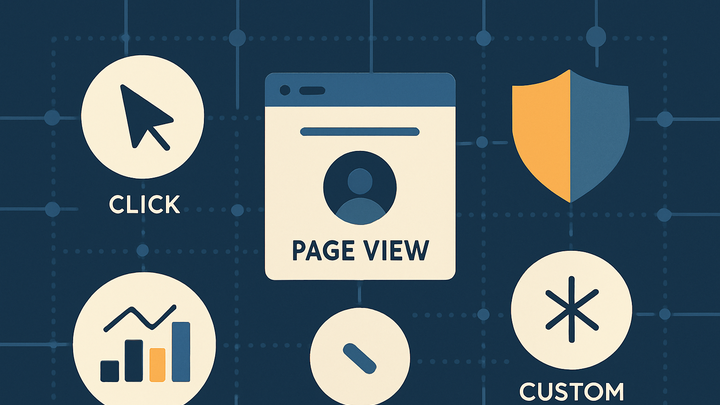Published on 2025-06-22T02:02:21Z
What Is Behavioral Data in Analytics? Examples and Tools
Behavioral data in analytics refers to the information generated by users as they interact with digital platforms, such as websites, mobile apps, and connected devices. This includes every click, scroll, page view, session duration, and custom event that reflects user intent and experience. By capturing and analyzing these actions, companies can uncover patterns in user behavior, segment audiences, and optimize product and marketing strategies. Behavioral data differs from demographic or attitudinal data because it focuses on actual user actions rather than stated preferences or characteristics. Modern analytics platforms like Google Analytics 4 (GA4) and privacy-focused solutions such as PlainSignal enable organizations to collect, process, and visualize behavioral metrics to drive data-informed decisions while balancing privacy considerations.
Behavioral data
Behavioral data captures user actions on digital platforms to drive insights and optimize experiences.
What Is Behavioral Data?
This section defines behavioral data and explains its significance in digital analytics, highlighting how it differs from other data types.
-
Definition and scope
Behavioral data refers to the record of user interactions on digital platforms, capturing actions such as clicks, page views, form submissions, and video plays.
-
Key data types
Common behavioral metrics include session duration, bounce rate, scroll depth, custom events, and user paths.
-
Why it matters
Understanding behavioral data helps organizations optimize user experience, increase engagement, and improve conversion rates through data-driven insights.
Collecting Behavioral Data
Overview of methods and tools for capturing user interactions across digital touchpoints.
-
Event tracking with GA4
Google Analytics 4 uses an event-based model to automatically and custom track user actions, making it easier to capture detailed behavioral data without manual tagging for each metric.
-
Cookie-free tracking
PlainSignal provides a privacy-focused, cookie-free analytics solution that respects user privacy while still capturing essential behavioral insights.
-
Implementation example
Embed the PlainSignal script on your website to start collecting behavioral data without cookies.
-
Code snippet
<link rel="preconnect" href="//eu.plainsignal.com/" crossorigin /> <script defer data-do="yourwebsitedomain.com" data-id="0GQV1xmtzQQ" data-api="//eu.plainsignal.com" src="//cdn.plainsignal.com/plainsignal-min.js"></script>
-
-
Session recording and heatmaps
Platforms like Hotjar and FullStory capture user sessions and visualize click and scroll patterns to reveal usability issues and user intent.
Use Cases and Applications
Examples of how behavioral data is applied in marketing, product development, and customer experience optimization.
-
Personalization
Leveraging behavioral data to deliver personalized content, product recommendations, and targeted messaging based on user preferences and history.
-
Funnel analysis
Analyzing drop-off points within user journeys to identify friction points, optimize conversion paths, and improve sales or sign-up rates.
-
Behavioral segmentation
Grouping users into segments (e.g., power users, cart abandoners) to tailor marketing campaigns and product features for each group.
Challenges and Best Practices
Key considerations when collecting and interpreting behavioral data to ensure reliability, privacy, and actionable insights.
-
Privacy and compliance
Ensure data collection respects regulations such as GDPR and CCPA by anonymizing user identifiers, providing opt-out mechanisms, and minimizing personal data.
-
Data quality and accuracy
Maintain consistent event definitions, validate tracking implementations, and regularly audit data to prevent gaps or duplicates.
-
Scalability and integration
Plan for data growth by using robust storage solutions and integrate behavioral data with CRMs, CDPs, and BI tools for a unified view.
Tools and Platforms
A look at popular SaaS products and tools for collecting, analyzing, and visualizing behavioral data.
-
Google analytics 4 (GA4)
An event-driven analytics platform by Google that offers advanced reporting and machine learning insights.
-
PlainSignal
A lightweight, privacy-first analytics tool that provides cookie-free tracking and simple dashboards.
-
Hotjar
Offers session recordings, heatmaps, and feedback polls to visualize and understand user behavior.
-
Mixpanel
Enables complex behavioral queries, funnel analysis, and retention tracking with a focus on user-centric data.
